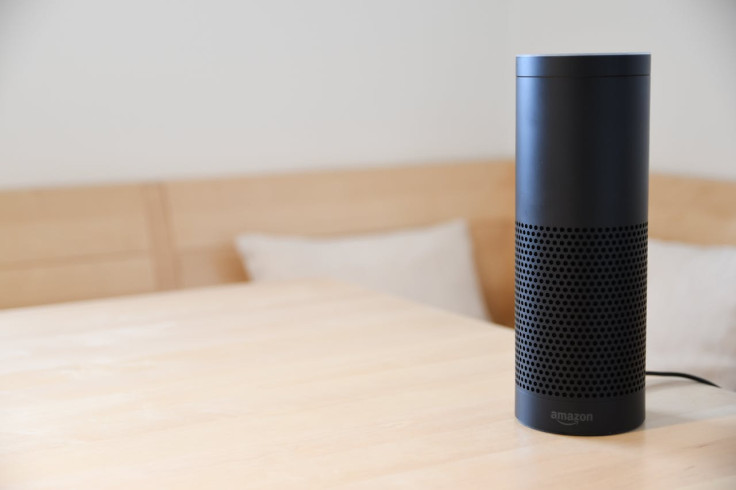Couple Get An Hour-Long Voicemail From Their Amazon Alexa; It Had Recorded Their Conversations
Echo recorded them talking to their dog, Penny

A New Jersey couple woke up to a chilling surprise: a 67-minute-long voicemail from an "unknown caller" that turned out to be their Amazon Alexa.
Speaking to DailyMail.com, Kate Creegan revealed that the unnerving message included fragments of her commands - dimming the lights via Echo and even her husband's conversation with their dog, Penny.
"I was checking the message ... and was like, wait, this is me talking in the bedroom," she said. While Alexa can call your phone through the "Find My Phone" feature, a company spokesperson assures users that Echo devices only record and store conversations triggered by the wake word, which triggers a light on the device to indicate it's actively listening.
Amazon, the Jeff Bezos-led technology company, has been catching flak for recording conversations. Last year, the company faced lawsuits alleging privacy violations, including failing to delete children's voice recordings properly. The company paid $30.8 (£24.36) million for both violations.
Although Creegan noted that the message did not include much talking, she did recognise fragments of herself instructing Alexa to "turn the lights off" and even a couple of sentences directed towards their dog.
Creegan said her husband arrived roughly 45 minutes later and continued their conversation about dinner and the pasta sauce she had cooked that night. Creegan wasn't sure if she was sleeping during the call. The lengthy voicemail, exceeding an hour, slipped past her unnoticed.
Her grandson, however, had recently modified her phone settings to silence unknown numbers, further explaining the missed call. Creegan, who was initially unfazed, contacted Amazon a few days later. Much to her chagrin, she was connected to a chatbot that couldn't comprehend her inquiry.
Alexa gone rogue: Unintended voicemail raises privacy concerns
After securing a connection with a human representative, Creegan was informed that her device had been compromised. The representative asked if she knew someone named Melissa, alleging this individual was responsible for the hack.
"I remember thinking, 'This is wrong,' and that's when I got mad about it," she added. Hackers can gain access to Amazon Echo devices in several ways. One of the methods involves installing malicious software that transforms the device into a remote listening tool.
Amazon users are seeking to have a lawsuit reinstated over Alexa’s voice recordings being used for targeted ads, stating that the company never notified users of this practice.https://t.co/0npSF4h6Jq
— PanquakePpl (@PanquakePpl) March 16, 2024
Refuse to be a digital commodity!#TargetedAds #privacyprotection pic.twitter.com/hcP4uyWl1Y
Alternatively, the malware might disguise itself as a harmless third-party app, tricking users into installing it. The apps can then perform actions like ordering food or adding events to a Google calendar under the attacker's control.
Last year, Amazon supercharged its digital assistant with the capabilities of generative artificial intelligence. Artificial intelligence (AI) can also mimic a user's voice, potentially granting unauthorised access to linked accounts.
After contacting a news outlet, Creegan received another call from Amazon, claiming the Echo misheard a word as "Alexa" and interpreted later sounds as a "call my phone" request. As a result, it triggered the Find My Phone feature. The unanswered call then went to voicemail, recording the 67-minute message.
Amazon's Alexa has a history of unexpected behaviour. Last year, a student paramedic reported their Echo Dot advising her to self-harm for "the greater good."
© Copyright IBTimes 2025. All rights reserved.






















